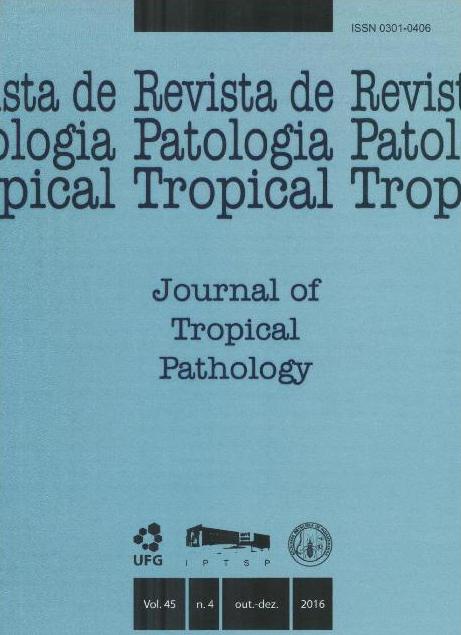LONG-LASTING INSECTICIDE-TREATED NETS (LLINs) USED TO REDUCE THE INCIDENCE OF MALARIA IN A MUNICIPAL DISTRICT OF THE BRAZILIAN AMAZON
DOI:
https://doi.org/10.5216/rpt.v45i4.44600Keywords:
Malaria, Amazon, vectors, insecticide-treated bednets, LLINs.Abstract
Malaria is still the parasitic disease with the greatest worldwide impact. Recently in Brazil, almost all cases of the disease have been recorded in the Amazon region. The struggle against the vectors through insecticide treated nets associated with rapid diagnosis and treatment, is currently the main strategy. This study aimed to determine the protective effect of these devices on the incidence of malaria in one municipality in the Amazon, and was conducted with information from the Brazilian Ministry of Health and with the analysis of 10,050 slides of thick blood smears that were prepared and examined in loco. The Shapiro-Wilk test was used to determine the normality of the data and the Mann-Whitney test was used for all comparisons of the analyzed variables. The significance level was set at p?0.01. The results revealed a significant reduction in the number of malaria cases in all analyzed variables, including the species of the parasite, the level and type of infection, and the gender and age of the diagnosed individual (p?0.01). These findings confirmed that these devices are an important tool for disease control, presenting a new variable in combating the disease in the studied population.
Therefore, the use of insecticide-treated nets is recommended as a preventive measure and guidance to the population regarding the correct way to use this device is required to avoid problems such as the loss of naturally acquired immunity, reduction in the protective effect of the device and the development of resistance to the insecticide.
Downloads
Downloads
Published
How to Cite
Issue
Section
License
The manuscript submission must be accompanied by a letter signed by all authors stating the full name and email address, confirming that the material has not been published or is under consideration for publication elsewhere, and agreeing to transfer copyright in all media and formats for Journal of Tropical Pathology. The authors will not be paid for published articles. They are solely responsible for the content of those articles, even if the Editor holds the right to adjust them to the norms of the journal.
The reviewers will not be paid for the peer review process.

